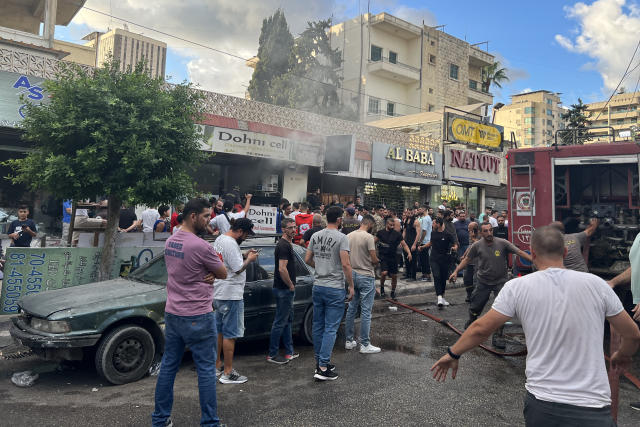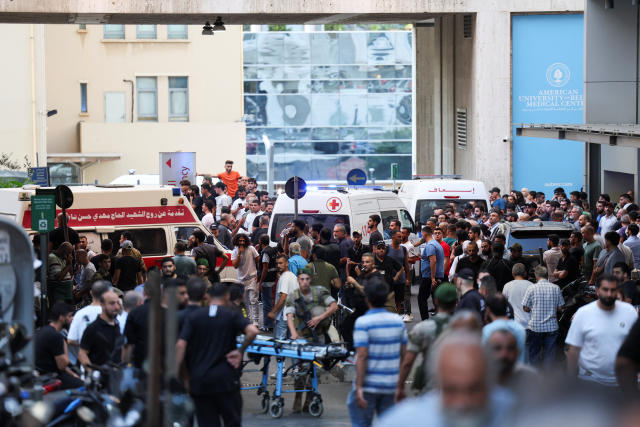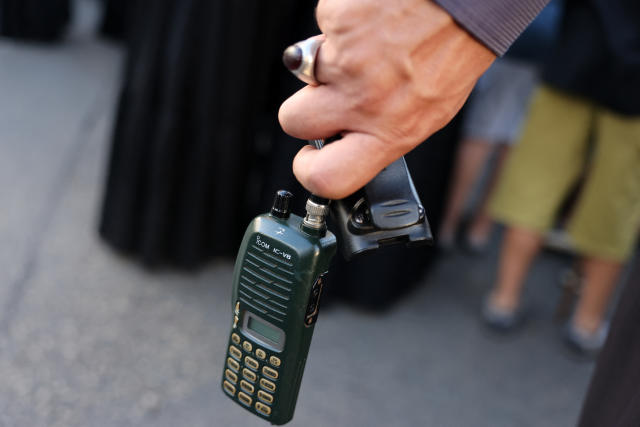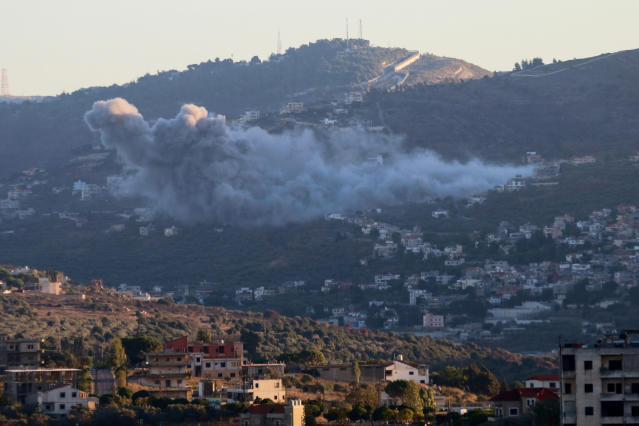
Hassan Nasrallah, leader of the Iran-backed militant group Hezbollah, vowed on Thursday to retaliate after two days of attacks on handheld electronic devices in Lebanon left at least 37 people dead and thousands of others wounded.
“Indeed, we have endured a severe and cruel blow,” Nasrallah said in a televised address, accusing Israel of breaking “all conventions and laws and red lines” in what appeared to be coordinated explosions of pagers and radios carried by Hezbollah fighters.
Israel has not directly commented on the attacks. But Israeli Defense Minister Yoav Gallant on Wednesday described Israel’s war in the region as entering a “new phase.”
On Thursday, the Israeli military launched a series of airstrikes on Hezbollah targets in Lebanon which it said were intended to “degrade Hezbollah’s terrorist capabilities and infrastructure.”
Nasrallah did not say how, when or where Hezbollah would retaliate. “I will not speak about time, or form or place,” he said, adding: “This retribution will come.”
How the attacks unfolded

On Tuesday afternoon, pagers started beeping on streets and sidewalks and inside cafés and grocery stores across Lebanon and Syria before heating up and exploding, killing at least a dozen people, including an 8-year-old girl, and wounding thousands of others.
Videos from closed-circuit television shared on social media showed several of the explosions.
Witnesses reported smoke coming from people’s pockets. Hospitals reported receiving patients with injuries to the eyes, hands and waist.
A second wave of explosions, this time targeting walkie-talkies and handheld radios used by members of Hezbollah,was Reported in Lebanon on Wednesday, killing at least 25 people and wounding hundreds more.
According to the Associated Press, blasts were heard at the funeral of Hezbollah members and a child killed by exploding pagers the day before.
Who were the victims?

Per the AP, most of those hit were members or linked to members of Hezbollah. But it was not immediately clear if other civilians were among the victims.
Lebanese Health Minister Firass Abiad said two children, including an 8-year-old girl, were killed in the initial attacks. The New York Times reported Wednesday that Iran’s ambassador to Lebanon, Mojtaba Amini, lost an eye when his pager exploded.
Who was behind the explosions?
Reuters reported that Israel’s Mossad spy agency planted explosives inside 5,000 pagers that were imported by Hezbollah months ago. Israel has not officially commented on the attack.
According to the New York Times, “the explosive material, as little as one or two ounces, was inserted next to the battery in each pager.”
Who manufactured the pagers?
Multiple reports indicated that Hezbollah had ordered the pagers from a company in Taiwan called Gold Apollo. But Gold Apollo said in a statement that the pagers used in Tuesday’s attack were manufactured by BAC Consulting KFT, based in Budapest, Hungary, the AP reported.
The Times Later reported that BAC Consulting was “part of an Israeli front” that included shell companies created to “mask the real identities of the people creating the pagers: Israeli intelligence officers.”
Why is Hezbollah using pagers and walkie-talkies?

Hezbollah fighters have been using the low-tech devices instead of cellphones in an attempt to evade Israeli surveillance. In a speech earlier this year, Hassan Nasrallah, the militant group’s leader, encouraged members to break their cellphones or “lock them in an iron box.
According to Reuters, the handheld radios were “purchased by Hezbollah five months ago, around the same time that the pagers were bought.”
The big picture

The attacks have renewed fears that mounting tensions between Israel and Hezbollah amid the Israel-Hamas war in Gaza could explode into a full-scale war of its own.
The Lebanese government condemned the pager attack as “criminal Israeli aggression,” and Hezbollah pledged to retaliate.
Tuesday’s attack came a day after Israeli leaders warned that they were considering stepping up their military campaign against Hezbollah, which backs Hamas. Israel and Hezbollah have been engaged in cross-border clashes since the war in Gaza began.
Hours before the pager explosions, the Times reported that the Israeli military had accused Hezbollah of attempting to assassinate a retired senior member of Israel’s security services with an explosive device that could be remotely detonated.
White House National Security Communications Adviser John Kirby said Wednesday that the United States was not involved in the attacks “in any way,” and that it’s “too soon to know” what effect they will have on ongoing ceasefire negotiations between Hamas and Israel.



